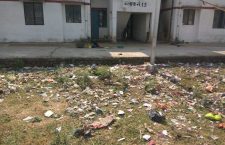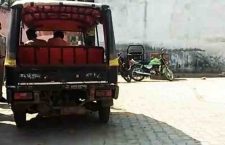Rate card for conversion of innocent Hindus – with different rates for converting Brahmins, Punjabis, Gujaratis, and Kshatriyas, unearthed in Kerala.
In a masterstroke, PM Modi helps the UAE Government in seizing assets worth 15,000 crore rupees of India’s most wanted criminal, Dawood Ibrahim.
Akhilesh Yadav slaps Neta ji aka Mulayam Singh Yadav.
Scrolling through a few regular What’s App windows in local Bundelkhand could give more than a few fiction writers more than their fair share of story ideas. Snippets of juicy, enticing information masquerading as news – there’s even a term for it, What’s App news, aka ‘Whats App mein padha tha, khoob chal raha hai’ – that are, needless to say, untrue and extremely harmful, again needless to say.
With a smartphone in hand, hordes of young men in the hinterlands pose as journalists, and with the deluge of content that the local Bundeli is currently used to, in fact, hungers for, checks, and source-whetting or corroborations aren’t exactly built into the fabric of news-making in Bundelkhand.
Or news-breaking, as the heartland prefers to call it. Breaking Mahoba, a local popular What’s App media group with 208 members (at last count), is one of the most happening spaces where news is often broken, written expressly for What’s App sharing, complete with videos and legit-looking links to ‘read more’. In fact, Breaking Mahoba might have been playing on his mind when BJP chief Amit Shah said at an event in Kota, Rajasthan in September, “With our army of 32 lakh WhatsApp personnel, we can send whatever message we like to the public – be it sweet or bitter, be it true or false!” Especially since Shah went on to cite the ‘Akhilesh Yadav slaps father’ message as proof – pausing ever so effectively for the audience’s ROFL moment.
Even as Facebook finds itself in crisis reputation-saving mode, putting together a task force specifically designed to combat the spread of fake news in the country in the run up to the upcoming 2019 elections, WhatsApp news and its instant spread continues to be the demon that seems impossible to vanquish. As Mahoba’s Chandreshekhar Namdev, a reporter for Hindi Khabar, says, “Take any major political party today, they all have their own specialised IT cells. They have experts tailoring photos, videos and news pieces to suit their interests and subsequently pushing these to the public through various social media channels. These doctored “news” pieces – having no basis in truth or facts whatsoever – are continuously shared, and before you know it, half the world believes it to be true.”
This is particularly true – alarming you could say – in the Hindi belt, where a limited access to education coupled with the inability to speak and understand English, gives WhatsApp the preferred area for the rural and small town populace, who choose it over other platforms like Facebook and Twitter. What’s App news hence becomes nothing short of everyone’s favourite go-to news feed. It could be the doctored video on a viral WhatsApp message that had all the residents of Banda believing that a witch had actually intercepted a police car one night – “video recorded by brave police officer”, or the stroke of good luck news piece that had, allegedly, blessed an entire town in Mahoba only to become ‘Breaking Mahoba’. A fake sense of sensationalism that courses through the veins of a local news group. Ziya-ul-Haq of National Live, elaborates further, “We often receive calls from Lucknow or Delhi inquiring about certain events that have allegedly taken place in our Chitrakoot, and we ourselves have never heard of any such thing. They all believe it and we have to inform them that it is all fake. The thing is that everything invariably gets sensationalised on WhatsApp groups and Facebook, but when you come and look at the ground reality, it is nothing like what it is made to sound like, and is actually quite calm.”
Uttar Pradesh accounts for 15% of all mobile phones in the country; the state is also the leader in the total number of telecom subscribers in the country. As life gets busier and people trade off time and patience for their screens, quick and easy social media news is clearly where the bite is. “Nobody wants to make the effort of actually reading a newspaper,” is a common enough observation. And while this may be true nationally, even globally, there is a method to the mania, employed solely for the heartland. “There are certain antisocial elements whose only job is to spread rumours and sensationalise things. Such people get themselves added on to WhatsApp groups and so on and start pushing fake content. In all their naivety, people do not care to verify such information coming their way and blindly believe it. Not only do they believe it but unknowingly also spread fake news by sharing it further,” says Vijay Pratap Singh who is a journalist at the Mahoba office of Dainik Bhaskar.
This is something that Shah has hinted at, which news portals have analysed again and again. The BJP, with its massive organisational structure comprising of technicians and designers responsible for creating desirable content, employed an army of over 5,000 workers at the regional, district and Assembly levels whose only job in the run-up to the 2017 state elections was to spread content through WhatsApp groups and other social media platforms. An election that instated Yogi Adityanath as Chief Minister, who very recently, encouraged the BJP youth wing’s members to use social media as a weapon to expose opposition parties and to promote the welfare schemes of the BJP government.
Martial arts trainer and Banda resident Suman Singh, also a social media enthusiast, is dismissive of the panic though. She places her faith in being alert, laced with a dash of cynicism, “Whichever political party may come into power, they have all sold fake news to us and they have all ended up forming our government in the end.”
Suffice to say that Singh, tough as she is, does not speak for the Bundeli populace.
This Khabar Lahariya article first appeared on Firstpost.

